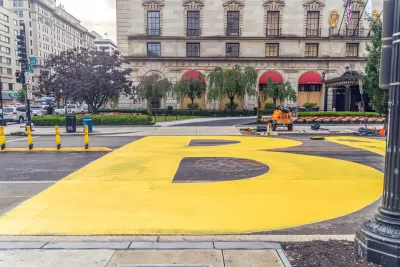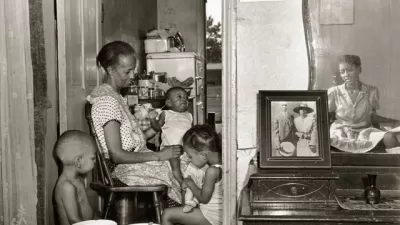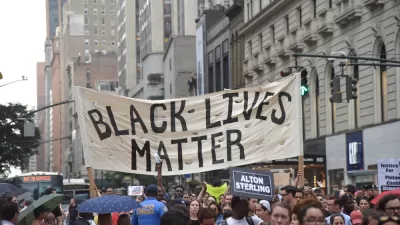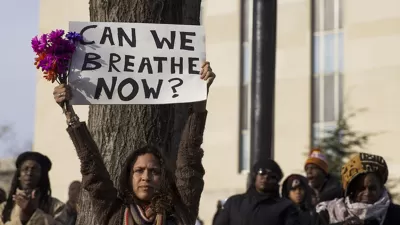If planners want to address the impacts of exclusionary planning, historical inequities, and policies that ignore the needs of women and minorities, they must address systemic inequities within the field itself.

Despite their high rate of participation in civic life (more than twice as high as the general population) and strong presence in community meetings and organizations, Black women are still vastly underrepresented in the urban planning field. Until the profession diversifies internally, policy decisions will continue to overlook underrepresented communities.
It's no question that women have made significant gains in the planning profession in recent years, but the growth hasn't been uniform, with the transportation, design, and engineering subfields still skewing heavily toward male planners. While women now make up almost half of the American planning workforce, Black women only comprise 3% of professional planners, and the percentage of planning degrees awarded to Black graduates is stagnant.
At the core of the need for more diverse planning departments is trust. In order to even engage with public processes—often confusing and inaccessible—communities have to feel that their voices will be "championed by trustworthy agents within the system" that are working for their goals.
A good start, writes Lindiwe Rennert, is to recognize the important community-building work that Black women without formal training do. "Black women have been doing planning work without academia accredited planning training since the concept of planning was birthed," she says. Now it's time to value it.
FULL STORY: Black Women in Planning: Where Are We?

Planetizen Federal Action Tracker
A weekly monitor of how Trump’s orders and actions are impacting planners and planning in America.

Congressman Proposes Bill to Rename DC Metro “Trump Train”
The Make Autorail Great Again Act would withhold federal funding to the system until the Washington Metropolitan Area Transit Authority (WMATA), rebrands as the Washington Metropolitan Authority for Greater Access (WMAGA).

DARTSpace Platform Streamlines Dallas TOD Application Process
The Dallas transit agency hopes a shorter permitting timeline will boost transit-oriented development around rail stations.

Parks: Essential Community Infrastructure — and a Smart Investment
Even during times of budget constraint, continued investment in parks is critical, as they provide proven benefits to public health, safety, climate resilience, and community well-being — particularly for under-resourced communities.

Porches, Pets, and the People We Grow Old With
Neighborhood connections and animal companions matter to aging with dignity, and how we build can support them. Here’s a human-scale proposal for aging in place.

Single-Stair Design Contest Envisions Human-Scale Buildings
Single-stair building construction is having a resurgence in the United States, where, for the last several decades, zoning codes have required more than one staircase in multi-story housing developments.
Urban Design for Planners 1: Software Tools
This six-course series explores essential urban design concepts using open source software and equips planners with the tools they need to participate fully in the urban design process.
Planning for Universal Design
Learn the tools for implementing Universal Design in planning regulations.
City of Charlotte
Municipality of Princeton
City of Camden Redevelopment Agency
City of Astoria
Transportation Research & Education Center (TREC) at Portland State University
US High Speed Rail Association
City of Camden Redevelopment Agency
Municipality of Princeton (NJ)





























